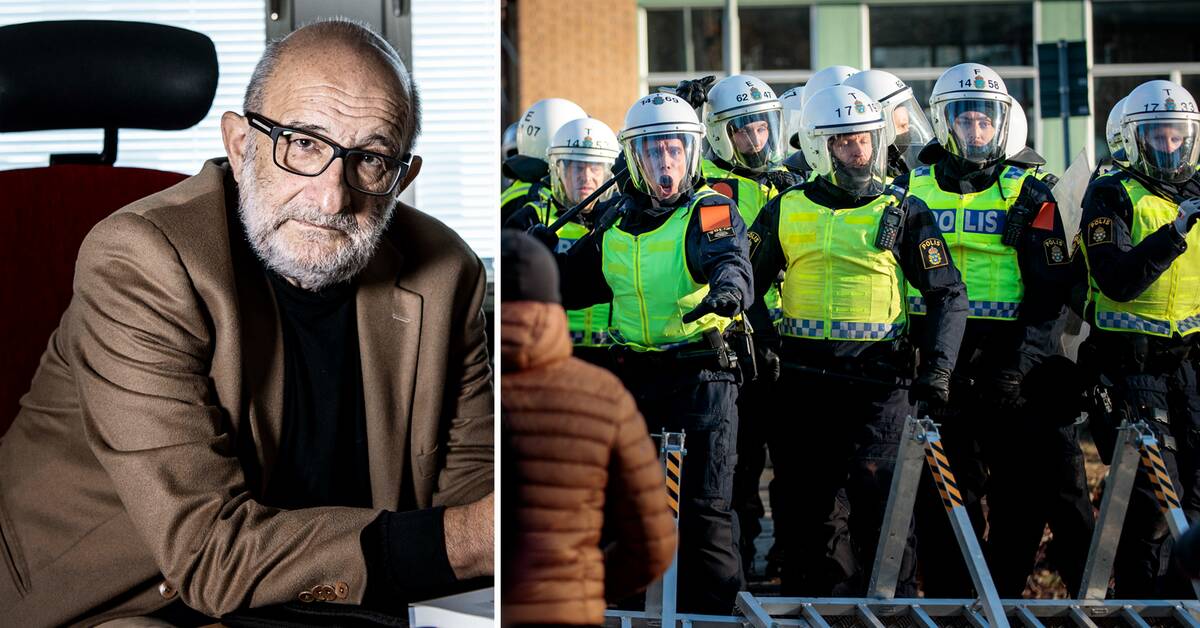The unrest of the last few days began in protest against Rasmus Paludan, party leader of the Danish right-wing extremist party Tight Course.
He had received permission for gatherings in several Swedish cities where he planned to burn copies of the Koran.
Jerzy Sarnecki, professor of criminology, describes the situation as very outrageous.
- The police have the opportunity to refuse permission when making the assessment that a socially dangerous situation will arise. In these cases, there were strong indications of that.
Partly because of the national and international situation, partly because one party wants to provoke and the other party wants to be provoked, says Sarnecki.
Strong reasons to refuse
He emphasizes that the police's ability to handle this type of gathering must be decisive for decisions on permits.
- The police intelligence activities locally should have sufficiently good knowledge of the conditions and resources.
It must be taken into account when granting a permit, says Sarnecki,
The quarrels and riots culminated in sharp clashes between police and protesters in Örebro on Friday night.
By then, Paludan had either held or received permission to hold square meetings in Norrköping, Linköping and Rinkeby in Stockholm.
- The provocateur is very skilled.
He chooses places where he expects reactions and he chooses times when people are free and the police have limited resources, says Sarnecki.
Poor judgment
Stefan Holgersson, police officer and senior lecturer at Linköping University, is also critical of the police's strategy.
- The police have not dimensioned the resources in a good way.
It can be seen that the police's ability to handle violent situations has decreased, and the structural problems that the police struggle with are shown in area after area.
It's not just about passport management.
Holgersson believes that a major problem is that in practice they have abandoned the dialogue police concept, which means that they have a poorer ability to assess situations, and also to act physically, situationally and prevent incidents.
Previously, they created a genuine dialogue with organizers and with residents, and received information and could influence more, he says.
- It is not the police's fault that people throw stones and burn police cars, it is important to point out, but the police's actions in these situations undermine trust.

